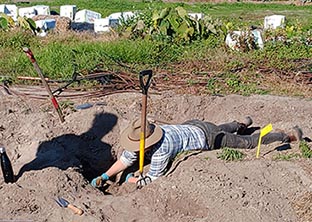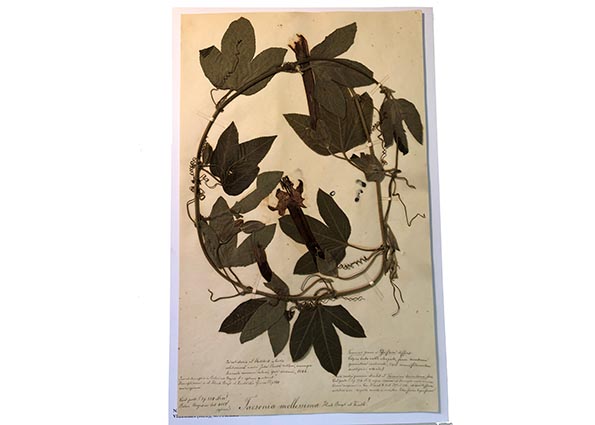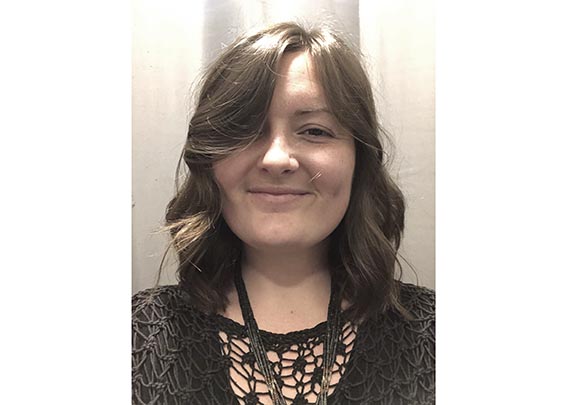Jessica Gardner: Humans of BioSciences
Meet Jessica Gardner, a plant scientist, foodie and gardener with a passion for native Australian food plants. Jess completed her Master of Science (BioSciences) at the University of Melbourne last year and her project investigated how native Australian sweet potatoes grow and what their nutrient profile looks like. Jess is now a Senior Curation Assistant at the National Herbarium of Victoria where she is processing and mounting plant specimens that are between 100 and 150 years old.
What problem were you trying to solve with your Master’s research?
My Master’s research project investigated the horticultural potential and nutritional value/biochemistry of native Australian sweet potato tubers. I was supervised by Dr Rebecca Miller, Dr Chris Williams and Associate Professor Alex Johnson.
I’m passionate about native Australian food plants, and I was lucky to find some amazing supervisors who were also interested in them and keen to do a project with me. I chose native sweet potatoes and did a project over two years investigating how they grow, under both glasshouse and field conditions, and what their nutrient profile looks like. It turns out that native sweet potatoes are super nutritious, but not so easy to grow and harvest. I utilised the orange sweet potato (Ipomoea batatas var. Beauregard) as my industry standard/control, which has been selectively bred to be very easy to harvest as the tubers just grow right there at the top of the soil. The natives on the other hand, are wily buggers that burrow deep. You can find tubers really far away from the plant by following the roots, and even as far down as to have punched through the plow pan! As my wonderful helpers who helped me excavate the tubers can attest, it is a lot of digging and hard work!

What do you do at the National Herbarium?
I am currently working as part of the Preparation for Digitisation project at the National Herbarium of Victoria. My role as a Senior Curation Assistant is to process the specimens in the Foreign Collection (which are between 100 - 150 years old) ready for mounting, mount the more difficult specimens, and check the specimens that have been mounted by others as a form of quality control. Mounting plant specimens involves securing the dried plant (whole plant or a sample, preferably fertile specimens with fruit and flowers) to a large sheet of archival paper. Thread and paper stripping are used to secure the specimen, and then a pocket is glued on to the sheet to house remaining fragments and any other labels or information that accompanied the specimen. Mounted specimens are then entered into the database and stored in the Herbarium collection, which is essentially a scientific plant library.
Working on super old plants is really cool and fun (especially for a plant nerd!). Despite their age, some plants still have green leaves and brightly coloured flowers. Some of the locations and collectors are really interesting too. The other day I came across a specimen that was once part of a collection owned by Prince Roland Bonaparte!

What do you enjoy doing outside of science?
I enjoy crocheting, gardening, cooking and eating, and reading books about plants, gardening, food, bread, indigenous food/people/culture, and historical fiction. I am also a member of the National Leadership Team for Youth Food Movement Australia.
Do you have any advice for undergraduate students?
- Study for you, and study what you love - you'll put in the hours if you're interested in and passionate about it.
- Always make time for friends, food and fun - these are the things that create joy and make memories. If you are time and money poor (as is the case for most students), leverage necessary tasks, such as cooking. Cooking is a great way to get creative, unwind, show love for friends and family, and to nourish your body and soul.
- Take exceptional care of your physical and mental health.
Find out more
Master of Science (BioSciences)
National Herbarium of Victoria
'Humans of BioSciences' is a special series to introduce the School of BioSciences' undergrad and postgrad students, our academics, professional staff and associates.
